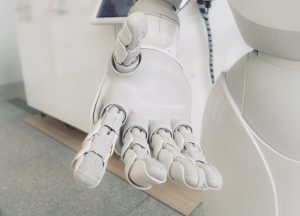
The Matrix, Terminator and I, Robot displayed frightening outcomes of the use and abuse of artificial intelligence (AI). Whilst some may believe that AI is still in its infancy, recent developments may come as a surprise. The use of AI in finance in recent years has had surprising results. In one case, the developers of one particular AI did not understand the rationale behind the AI’s financial trading decisions, even though those decisions lead to enormous profits. Other examples of AI include voice recognition smart assistants such as Siri, Alexa, Cortana and Google Now.
Cons of AI
Now expert reports state that “As AI Capabilities become more powerful and widespread, we [can] expect the growing use of AI systems to lead to the following changes in the landscape of threats: [an] expansion of existing threats, [an] introduction of new threats [and a] change to the typical character of threats”. It is difficult to deny the significant potential for abuse with this emerging technology.
In terms of our legal system (or any other), and the ability of law makers to effectively legislate this rapidly developing field, it is difficult to envisage an effective legal system to regulate and control an intelligence that thinks faster than you and does not require rest.
One example of misuse of this technology includes the weaponizing of drones, fitting unmanned aerial vehicles (UAVs) with weaponry then releasing them. As if that isn’t frightening enough, the report referred to above concedes that the best defence against AI, is more AI.
A significant consequence of the development of AI is that as AI improves, it can and will likely result in job losses. This has been predicted to start with jobs that can be more easily automated, however complex professions, including accounting and law, are predicted to be impacted heavily by AI within coming decades. Law firms are already using AI to efficiently perform required due diligence, conduct legal research and bill hours. Paralegal and legal research positions are among the first expected casualties in the legal profession. Additionally, studies have shown that people are more twice as likely to be frank with a machine, than a human, as a machine is incapable of judgment.
Whilst conflicting with and conquering humanity has been brilliantly portrayed in the films referred to above, the potential for AI to make decisions that we humans cannot understand is a legitimate fear, and, as shown above, in a financial example, has already happened.
Pros of AI
AI has the potential to optimise processes in a variety of industries. For example, AI can assist financial institutions in fraud and money-laundering detection through pattern-recognition.
In medicine, AI has the capacity to analyse huge amounts of data, allowing the quicker diagnosis to determine what condition a patient has. Such speed has the possibility to save lives that may have been lost. Furthermore, in the event a patient takes multiple medications, AI can quickly inform a doctor as to any potential conflicts with any combination of drugs, or the potential side effects. Additionally, robots have displayed impressive degrees of success in performing difficult surgeries. This may serve to lower the cost of surgeries in the future, improving accessibility to healthcare for all.
AI also has the capacity to improve safety and mitigate risk for human lives, for example by sending robots to explore the ocean, or areas that have recently been impacted by natural disasters or even by police to disarm explosives.
0 Comments
Post Comment